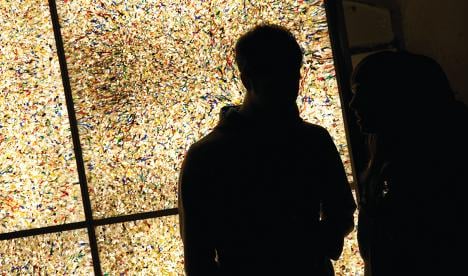The Berlin Fashion Week attracted thousands of designers, models and industry insiders to the German capital over the past few days for shows, trade fairs and parties.
While there were plenty of skinny models strutting their stuff on the city’s catwalks for tradition fashion labels, some exhibitors came with a decidedly different agenda.
This year’s event for green fashion, thekey.to, promoted environmentally friendly and fair-trade fashion in Berlin by bringing together 65 green fashion brands under one roof.
‘Pants to Poverty’ was one of the organic exhibitors at thekey.to. Ben Ramsden, the label’s founder, was part of the Make Poverty History campaign and then started his crusade to use clothes to change people’s opinions. “Fashion can change the world. I saw Calvin Klein’s exhibit at the Bread & Butter show last night and was inspired because my products mean something, Calvin Klein just has its name,” said Ramsden.
Click here for a photo gallery of green fashion.
But have such “green” events been pushed out of the limelight by the conventional catwalks and other events because such fashion is regarded as unstylish and quirky?
Norbert Kähler, from the French based label Article23, said he didn’t think that was the case. “The future of fashion is here,” he said. “We must persist for a few more years and it will become the mainstream. This event has only been here for three years but in that time it has grown and gained more credibility.”
He explained that Article23 goes against all assumptions of green clichés and designer Naia Rico had created a clothing line comparable with “mainstream” fashion seen on the catwalk.
“I wouldn’t want to be part of the conventional fashion events,” Noema Suchant, from the German company Slowmo, said. “The cramped and busy feel of those events do not go with the ethos and style of my work.” She said Slowmo aimed to put the quality back into clothing, taking the idea that sustainable fashion meant that the production process must operate in slow motion resulting in clothing that will last for many years.
As eco-friendly fashion and lifestyle trends continue to catch on, its proponents also hope the industry will use fewer chemicals and people in developing countries will be offered a decent wage while working in good conditions.
Only then will fashion truly be green.



 Please whitelist us to continue reading.
Please whitelist us to continue reading.
Member comments